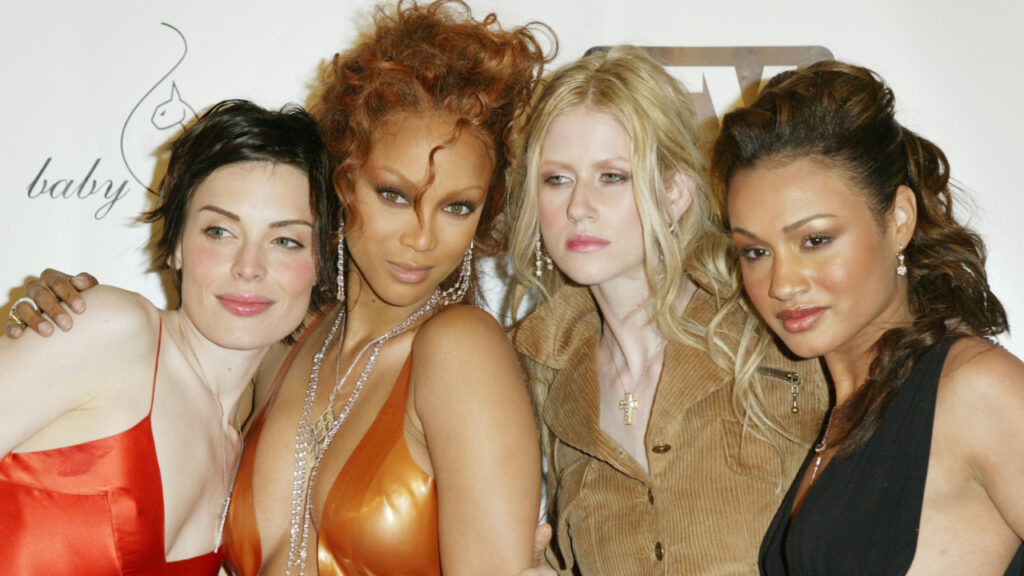
‘This Is Just the Beginning’: Florencia Cuenca Isn’t Done Making Broadway More Latina, More Immigrant, and More Real
When Florencia Cuenca walks onto a stage, she doesn’t just sing—she shows up fully as herself. That means showing up as a Mexican woman, as an immigrant, as a mother, as a ranchera singer, and as someone who isn’t afraid to claim her place in an industry that, for too long, has overlooked people like her.
In Real Women Have Curves: The Musical, Cuenca plays Estela García, a role that, as she told FIERCE, embraces every part of who she is. “It’s a blessing,” she said. “It’s a dream that, for a moment, I thought wouldn’t happen. Being a Mexican immigrant Latina in this city, in this country, in this industry—it’s tough. Especially in musical theater, which I love. But it’s a very white business, and there’s so little Latina representation.”

For Florencia Cuenca, This Role Means Everything
Cuenca is making history as the first Mexican-born woman to originate a co-leading role in a Broadway musical. But this milestone is about much more than representation—it’s about visibility, dignity, and storytelling. “I feel very blessed,” she said, “and I also feel it’s a big responsibility to represent my community in a way that’s dignified and authentic.”
While Josefina López’s original play was written decades ago, and the film adaptation came out in 2002, Cuenca believes the story still resonates. “Estela is a curvy, immigrant woman. I think a lot of people can relate to her. Especially now, with the political climate we’re living in, I think it’s very important for people to see Mexican immigrants on stage. To really get to know us, and form their own judgment about who we are—not just go off what the media says.”
“There Are Days I Don’t Look in the Mirror. And That’s Okay.”
Growing up Latina often means hearing constant commentary about your body—at home, in your community, and definitely in the media. Cuenca gets that. And she’s open about the fact that loving your body isn’t a one-time achievement. “I have issues with the whole ‘body positivity’ thing,” she said. “Because I don’t think it’s real. Not every day I’m going to like how I look. That’s impossible.”
“There are days I feel sexy and beautiful at any size,” she explained. “And there are days when I don’t want to look in the mirror. On those days, I just say: I’m alive. I’m healthy. I can walk with these legs and hug my loved ones with these arms. And when I feel amazing? Of course, I’ll take selfies and look in the mirror. But it’s a daily decision.”
Cuenca also emphasized how much social circles and family dynamics can influence our self-image. “As Latinas, we know our moms, tias, abuelas love to comment on other people’s bodies. So it’s important to set boundaries. With friends, too—I’ve said things like, ‘Hey, I don’t want to talk about diets.’ It’s valid to know your triggers. Setting limits isn’t bad. It’s necessary.”
How Broadway en Spanglish Was Born Out of Necessity
When Cuenca first moved to the U.S., she quickly realized there was little space for Latinas in musical theater—unless it was through a stereotypical lens. So she created the space herself.
“I couldn’t find space for me, so I made it,” she said. That’s how Broadway en Spanglish was born. “It’s literally what I am. My two great loves: Mexican culture and Broadway. My husband is also in musical theater—he’s a Mexican composer and arranger—and we said, let’s make this thing that is exactly who we are.”
The project started with love, and it resonated. “People said, ‘Wow, I didn’t know I needed this.’ For many Latinos, just hearing your rhythms or your language in a different context is representation. And that’s what we need—representation is so important.”
Being an Immigrant, a Mother, and Ambitious—All At Once
There’s a unique intersection that Cuenca inhabits: she’s an immigrant, a mother, and an ambitious woman in an industry that still penalizes all three. For her, those parts aren’t obstacles—they’re fuel.
“Society wants to dim our light,” she said. “To treat all the things we are as women as disadvantages. But I think about my ancestors and everything they went through. That gives me fuel. Every decision I make, I ask: What kind of ancestor am I becoming?”
“I want to be a chingona ancestor. The kind where people say, ‘That woman fought for something.’ The things I’ve gone through haven’t been easy, but I’m going through them so the ones who come after won’t have to.”
Florencia Cuenca and the Power of Rancheras
Musically, Cuenca is also reclaiming space in a genre often dominated by men: the ranchera. And she’s doing it with purpose.
“There are so many areas of art that have been off-limits to women. And I think we’re in a moment where we have to come together—musicians, directors, journalists—all of us. To keep telling our stories. To take back the narrative.”
For Florencia Cuenca, This Is Just the Beginning
Her standing ovation on Broadway wasn’t a final destination—it was a launchpad.
“This could’ve been anyone,” she said. “Any other Mexican woman could’ve made this history. But it doesn’t end here. There’s still so much work to do.”
She wants to create roles for more Mexican women. Support more writers, casting directors, and creatives. She’s also working on a nonprofit that will support immigrant women artists in the U.S.
“The sky’s the limit,” she said.
What the Broadway of Her Dreams Looks Like
So what does Cuenca imagine for the future of Broadway?
“A truly diverse stage,” she said. “A stage where representation isn’t just symbolic—where there are equal percentages of men, women, and non-binary folks. And not just in casting, but in language too. One of my biggest dreams is to act in Spanish, in musical theater, here in the U.S. That would be incredible.”
It’s a dream worth chasing. And with Florencia Cuenca leading the way, it’s one that feels closer than ever.




